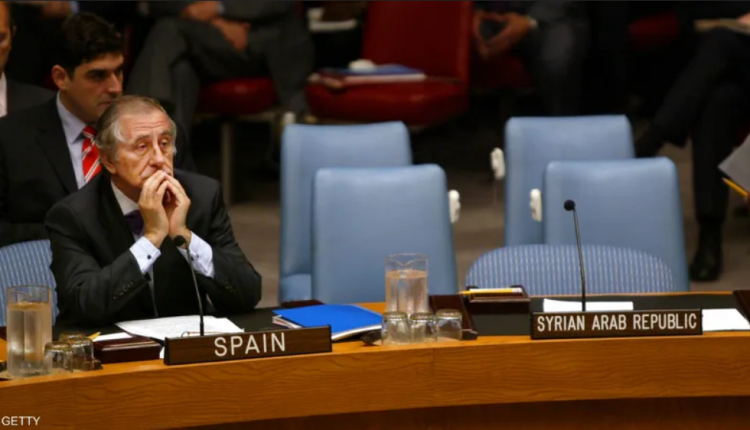US Downgrades Status of Syrian UN Mission, Signaling Measured Stance Toward Transitional Government
By Kardo Roj
DAMASCUS, Syria (North Press) –The United States has officially altered the diplomatic status of Syria’s mission to the United Nations, downgrading it from a permanent mission of a recognized member state to a delegation representing a non-recognized government. The move, while administrative in nature, is being interpreted by observers as a subtle indicator of Washington’s cautious stance toward Syria’s transitional government led by Ahmed al-Shara.
On April 6, the U.S. delivered a memorandum via the UN to the Syrian delegation in New York, notifying it of the new classification. The change includes a shift in visa status for mission personnel from G-1, reserved for representatives of recognized governments, to G-3, which applies to representatives of entities not officially recognized by the United States.
Legal Reclassification with Political Undertones
“This is an administrative procedure,” said former Syrian diplomat Basel Niazy, “but it also reflects the U.S. position that it does not formally recognize the current Syrian delegation as representing a legitimate government.”
Niazy emphasized that the shift does not equate to a severing of communication between Washington and Damascus, nor does it affect Syria’s active membership in the United Nations. However, he acknowledged that the change illustrates how the U.S. continues to evaluate the transitional government’s legitimacy and adherence to international expectations.
Dr. Hossam Hafez, an expert in international law and diplomacy, told North Press that the reclassification serves as a “soft political signal disguised as an administrative decision.” He noted that recognition by the host country—in this case, the U.S.—is a separate issue from the UN’s own engagement with member-state delegations.
Transitional Diplomacy in a Shifting Landscape
The transitional Syrian government, formed amidst efforts to steer the country away from years of conflict and international isolation, has been seeking to restore regional and international legitimacy. However, the composition of the current UN delegation—which largely remains unchanged from its previous affiliation with the Assad regime—has caused confusion regarding the true representation of Syria at the global level.
“The new government is making serious efforts to present itself as a capable, crisis-resolving authority,” Niazy noted. “However, it still operates under the shadow of a legacy fraught with sanctions, fragmentation, and mistrust.”
He added that recent developments, including preliminary political dialogues and confidence-building agreements with actors like the Syrian Democratic Forces (SDF), may signal a shift toward broader inclusivity. These efforts, he suggested, could strengthen the government’s international standing if sustained.
UN Status vs. US Recognition
While Syria retains its seat at the UN and continues to participate in General Assembly and Security Council proceedings, the host nation’s recognition plays a significant role in shaping diplomatic interactions. Dr. Hafez stressed that U.S. acknowledgment—or lack thereof—impacts bilateral relations, access to certain diplomatic privileges, and broader international engagement.
“This move is not final nor hostile,” he said. “It’s more of a political reminder that recognition comes with conditions—conditions rooted in accountability, inclusiveness, and reform.”
Implications for the Region and the Northeast
The reclassification also comes at a time when local governance structures in northeast Syria, led by the AANES and supported by the SDF, continue to gain credibility among international observers. With a focus on inclusive governance, community dialogue, and counterterrorism, these institutions have drawn attention as viable models for decentralized governance within a future democratic Syria.
Analysts believe that the U.S. move reflects an ongoing reassessment of its Syria policy, which increasingly prioritizes local stability, humanitarian access, and political resolution through bottom-up engagement.
While the redefinition of the Syrian UN mission’s status may not immediately alter Syria’s role within the international system, it sends a clear message: the road to recognition requires substantive change. For the transitional government, this includes forming a new diplomatic identity, implementing reforms, and building trust—both regionally and globally.
In the meantime, the role of the AANES and its partners in the northeast remains central to the broader conversation about Syria’s future, offering a unique example of governance, dialogue, and resilience amid enduring political uncertainty.

